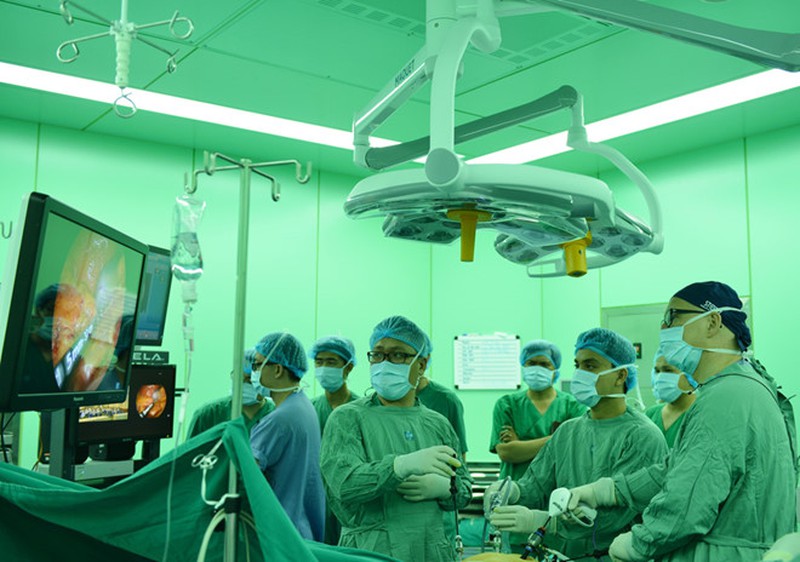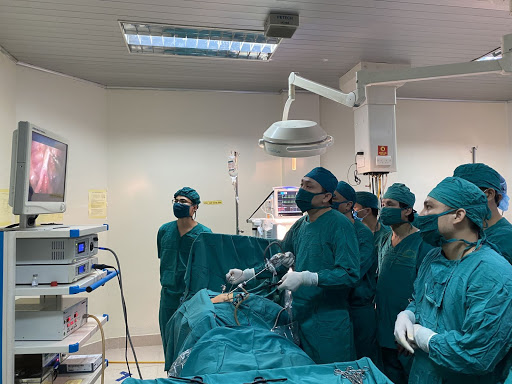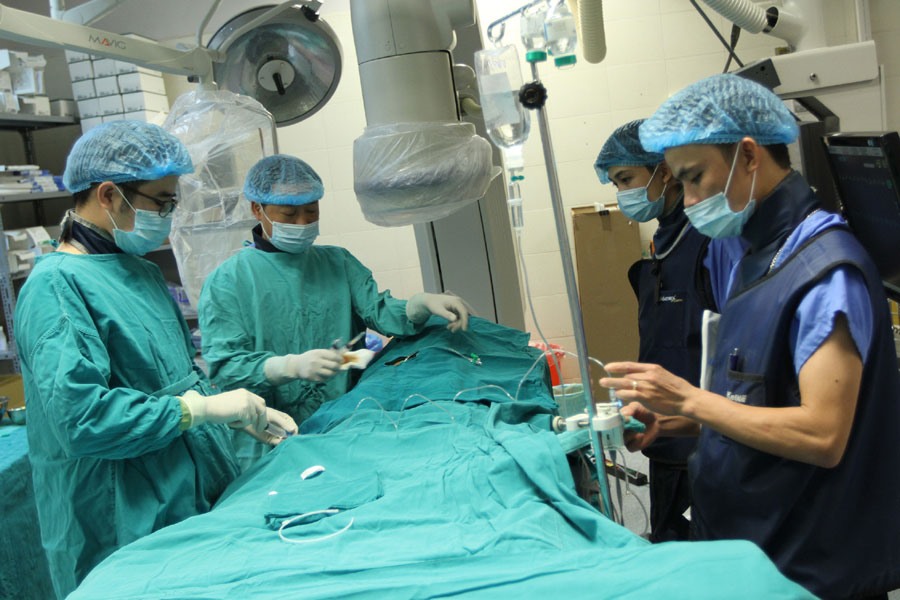Vietnam: The external departments are responsible for coordinating with the Anesthesia and Intensive Care department
Recently, the Ministry of Health of Vietnam issued Circular No. 13/2012/TT-BYT guiding the work of anesthesia and intensive care.

The external departments are responsible for coordinating with the Anesthesia and Intensive Care department (Illustration)
According to Article 15 of Circular 13/2012/TT-BYT, regulations on the cooperation between the surgical departments and the anesthesia – resuscitation department are specified as follows:
Firstly, surgical departments are responsible for:
- Creating medical records, examining, and conducting necessary tests or procedures for diagnosis and surgical method indication.
- Organizing the transfer of patients scheduled for surgery according to the plan to the anesthesia – resuscitation department for preoperative examination. In cases of critically ill patients or emergency situations, the anesthesia – resuscitation department should be notified to send a doctor for examination.
- Planning the surgery and informing the anesthesia – resuscitation department with full information: patient's name, age, gender, room number, diagnosis, anticipated method and time of surgery, names of the surgeons, and tracking file number (if managed by a computer system).
- The operating surgeon is responsible for monitoring, examining, and coordinating in implementing treatment protocols and managing any abnormalities related to the surgery performed on the patient.
Secondly, the anesthesia – resuscitation departments are responsible for:
- Preoperatively examining the patient, issuing additional treatment orders before surgery (if needed).
- Deciding on the appropriate anesthesia method for each patient.
- Scheduling surgeries based on priority and the patient's condition.
- Coordinating with relevant departments to arrange appropriate anesthesia and surgical teams.
- The anesthesiologist in charge has the right to refuse anesthesia if these principles are not followed or if there is a threat to safety during anesthesia, and they must take responsibility for their decision.
Note: In the absence of agreement between the surgeon and the anesthesiologist before and during surgery, a consultation should be organized according to regulations. In urgent emergency cases, decisions and orders can be communicated directly and completed in writing after the patient's resuscitation. Significant decisions should have a third-party witness to ensure objectivity.
For detailed content, refer to Circular 13/2012/TT-BYT, effective from October 10, 2012.
Le Vy
- Key word:
- Circular 13/2012/TT-BYT
- Number of deputy directors of departments in Vietnam in accordance with Decree 45/2025/ND-CP
- Cases ineligible for pardon in Vietnam in 2025
- Decree 50/2025 amending Decree 151/2017 on the management of public assets in Vietnam
- Circular 07/2025 amending Circular 02/2022 on the Law on Environmental Protection in Vietnam
- Adjustment to the organizational structure of the Ministry of Health of Vietnam: Certain agencies are no longer listed in the organizational structure
- Vietnam aims to welcome 22-23 million international tourists in Vietnam in 2025
-

- Vietnam: Anesthesiologists - intensivists must ...
- 16:55, 30/08/2012
-

- Vietnam: Equipment, drugs, and consumables of ...
- 16:33, 30/08/2012
-

- Notable new policies of Vietnam effective as of ...
- 16:26, 11/04/2025
-
.Medium.png)
- Notable documents of Vietnam in the previous week ...
- 16:21, 11/04/2025
-
.Medium.png)
- Notable documents of Vietnam in the previous week ...
- 16:11, 02/04/2025
-
.Medium.png)
- Notable new policies of Vietnam to be effective ...
- 16:04, 02/04/2025
-
.Medium.png)
- Notable new policies of Vietnam effective from ...
- 14:51, 21/03/2025
 Article table of contents
Article table of contents
